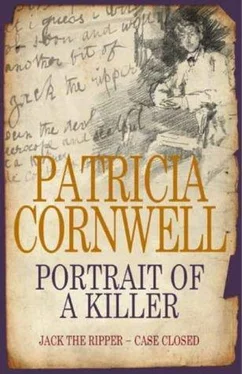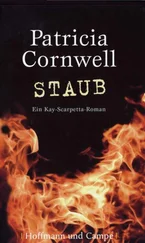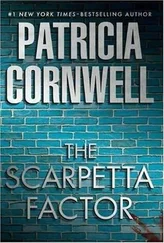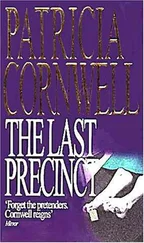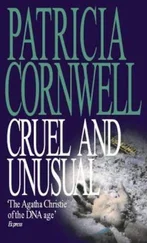Patricia Cornwell - Portrait Of A Killer - Jack The Ripper - Case Closed
Здесь есть возможность читать онлайн «Patricia Cornwell - Portrait Of A Killer - Jack The Ripper - Case Closed» весь текст электронной книги совершенно бесплатно (целиком полную версию без сокращений). В некоторых случаях можно слушать аудио, скачать через торрент в формате fb2 и присутствует краткое содержание. Жанр: Триллер, на английском языке. Описание произведения, (предисловие) а так же отзывы посетителей доступны на портале библиотеки ЛибКат.
- Название:Portrait Of A Killer: Jack The Ripper - Case Closed
- Автор:
- Жанр:
- Год:неизвестен
- ISBN:нет данных
- Рейтинг книги:5 / 5. Голосов: 1
-
Избранное:Добавить в избранное
- Отзывы:
-
Ваша оценка:
- 100
- 1
- 2
- 3
- 4
- 5
Portrait Of A Killer: Jack The Ripper - Case Closed: краткое содержание, описание и аннотация
Предлагаем к чтению аннотацию, описание, краткое содержание или предисловие (зависит от того, что написал сам автор книги «Portrait Of A Killer: Jack The Ripper - Case Closed»). Если вы не нашли необходимую информацию о книге — напишите в комментариях, мы постараемся отыскать её.
Portrait Of A Killer: Jack The Ripper - Case Closed — читать онлайн бесплатно полную книгу (весь текст) целиком
Ниже представлен текст книги, разбитый по страницам. Система сохранения места последней прочитанной страницы, позволяет с удобством читать онлайн бесплатно книгу «Portrait Of A Killer: Jack The Ripper - Case Closed», без необходимости каждый раз заново искать на чём Вы остановились. Поставьте закладку, и сможете в любой момент перейти на страницу, на которой закончили чтение.
Интервал:
Закладка:
He misspells bigger as an illiterate would, and I don't believe the glaring inconsistency in a letter such as this one was an accident. Sickert was playing one of his little games and showing what "fools" the police were. An alert investigator certainly should have questioned why someone would correctly spell "delicate" and "executed" and "examination" and yet misspell the simple word "bigger." But details that seem so obvious to us now have the benefit of hindsight and the analysis of art experts. The only artist looking at those letters then was the artist who created them, and many of his letters are not letters at all, but professional designs and works of art that ought to be framed and hung in a gallery.
Sickert must have thought he had no reason to fear that the police would notice or question the artwork in his taunting, violent, and obscene letters. Or perhaps he assumed that even if a shrewd investigator like Abberline picked up on the uniqueness of some of the letters, the path would never lead northwest to 54 Broadhurst Gardens. After all, the police were "idiots." Most people were stupid and boring, and Sickert often said as much.
Nobody was as brilliant, clever, cunning, or fascinating as Walter Sickert, not even Whistler or Oscar Wilde, neither of whom he enjoyed competing with at dinners and other gatherings. Sickert just might not show up if he wasn't going to be the center of attention. He didn't hesitate to admit that he was a "snob" and divided the world into two classes of people: those who interested him and those who did not. As is typical of psychopaths, Sickert believed that no investigator was his match, and as is also true of these remorseless, scary people, his delusional thinking lured him into leaving far more incriminating clues along his trails than he probably ever imagined.
The distant locations associated with a number of Ripper letters only added to the supposition that most of the letters were hoaxes. Police had no reason to believe that this East End murderer might be in one city one day and in another the next. No one seemed interested in considering that perhaps the Ripper really did move around and that perhaps there might be a link between these cities.
Many were on Henry Irving's theater company's schedule, which was published in the newspapers daily. Every spring and fall, Irving's company toured major theater cities such as Glasgow, Edinburgh, Manchester, Liverpool, Bradford, Leeds, Nottingham, Newcastle, and Plymouth, to name a few. Often Ellen Terry made the grueling journeys. "I shall be in a railway train from Newcastle to Leeds," she dismally reports in a letter written during one of these tours, and one can almost feel her exhaustion.
Most of these cities also had major racecourses, and several Ripper letters mention horse racing and give the police a few lucky betting tips. Sickert painted pictures of horse racing and was quite knowledgeable about the sport. In the March 19, 1914, New Age literary journal, he published an article he titled "A Stone Ginger," which was racing slang for "an absolute certainty," and he tossed in a few other bits of racing slang for good measure: "welsher" and "racecourse thief" and "sporting touts." Racecourses would have been a venue where Sickert could disappear into the crowd, especially if he was wearing one of his disguises and the race was in a city where he wasn't likely to encounter anybody he knew. At the races, prostitutes were plentiful.
Horse racing, gambling in casinos, and boxing were interests of Sickert's, although very little has been written about them in the books and articles I have seen. When the Ripper uses the term "Give up the sponge" in a letter that art experts believe Sickert wrote, is this a peek into Sickert's personality or simply his thoughtless use of a cliche? Is there any meaning to be found in the murky self-portrait that Sickert painted in 1908 that features him in a studio standing behind what is supposed to be a plaster torso of a boxer but looks more like a female who is decapitated, her limbs raggedly severed? Is there any significance in the reference in another Ripper letter to "Bangor Street," an address that doesn't exist in London, but Bangor is the home of a racecourse in Wales?
While I have no evidence that Sickert bet on horse races, I don't have any fact to say he didn't. Gambling may have been a secret addiction. Certainly that would help explain how he managed to go through money so quickly. By the time he and the parsimonious Ellen divorced, she was financially crippled and would never recover. Sickert's organized brain seemed to fail him when it came to finances. He thought nothing of hiring a cab and leaving it sitting all day. He gave away armfuls of paintings - sometimes to strangers - or let the canvases rot in his studios. He never earned much, but he had access to Ellen's money - even after their divorce - and then to the money of other women who took care of him, including his next two wives.
Sickert was generous to his brother Bernhard, who was a failed artist. He rented numerous rooms at a time, bought painting supplies, read multiple newspapers daily, must have had quite a wardrobe for his many disguises, was a devotee of the theaters and music halls, and traveled. But most of what he bought and rented was shabby and cheap, and he wasn't likely to go for the best seats in the house or travel first class. I don't know how much he gave away, but after their divorce, Ellen wrote, "To give him money is like giving it to a child to light a fire with."
She believed him to be so financially irresponsible - for reasons she never cited - that after their divorce she conspired with Jacques-Emile Blanche to buy Sickert's paintings. Blanche began purchasing them and she secretly reimbursed him. Sickert "must never never suspect that it comes from me," Ellen wrote Blanche. "I shall tell no one" - not even her sister Janie, in whom she had always confided. Ellen knew what Janie thought of Sickert and his exploitative ways. She also knew that helping her former husband was not really helping him. No matter what he got, it would never be enough. But she could not seem to help herself when it came to helping him.
"He is never out of my mind day or night," Ellen wrote Blanche in 1899. "You know what he is like - a child where money is concerned. Will you again be as kind as you were before amp; buy one of Walter's pictures at the right moment to be of most use to him? And will you not forget that this will be of no good unless you insist on arranging how the money is to be spent. He borrowed?600 from his brother in law (who is a poor man) amp; he ought to pay him interest on the sum. But I cannot."
Addiction to drugs and alcohol ran in Sickert's family. He probably had an addictive predisposition, which would help explain why he avoided alcohol in his younger years and then abused it later on. It would be risky to say that Sickert had a gambling problem. But money seemed to vanish when he touched it, and while the mention of horse racing and the cities where courses were located in the Ripper letters does not constitute "proof," these details pique our curiosity.
Sickert could have done pretty much whatever he pleased. His career did not require him to keep regular hours. He did not have to account to anyone, especially now that his apprenticeship with Whistler had ended and Sickert was no longer bound to do as the Master demanded. In the fall of 1888, the Master was on his honeymoon and neither knew nor cared what Sickert did with his days. Ellen and Janie were in Ireland - not that Ellen had to be away when Sickert decided to vanish for a night or a week. Disappearing in Great Britain was relatively easy, as long as the trains were running. It was no great matter to cross the English Channel in the morning and have dinner in France that evening.
Whatever caused Sickert's chronic "financial muddle," to borrow Ellen's words, it was serious enough to push her to the extraordinary lengths of secretly funneling money his way after she divorced him for adultery and desertion. It was so serious that Sickert died in 1942 with only?135 to his name.
Читать дальшеИнтервал:
Закладка:
Похожие книги на «Portrait Of A Killer: Jack The Ripper - Case Closed»
Представляем Вашему вниманию похожие книги на «Portrait Of A Killer: Jack The Ripper - Case Closed» списком для выбора. Мы отобрали схожую по названию и смыслу литературу в надежде предоставить читателям больше вариантов отыскать новые, интересные, ещё непрочитанные произведения.
Обсуждение, отзывы о книге «Portrait Of A Killer: Jack The Ripper - Case Closed» и просто собственные мнения читателей. Оставьте ваши комментарии, напишите, что Вы думаете о произведении, его смысле или главных героях. Укажите что конкретно понравилось, а что нет, и почему Вы так считаете.
